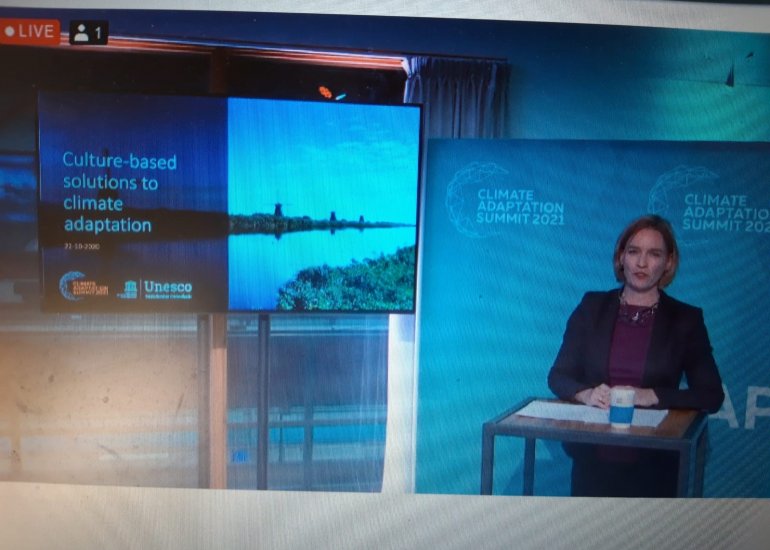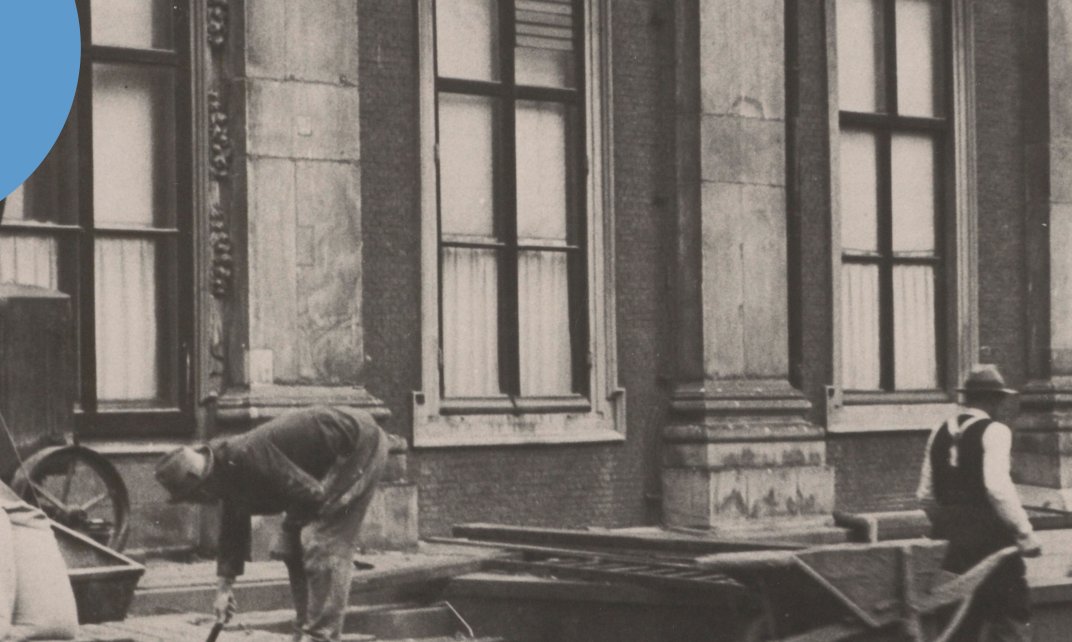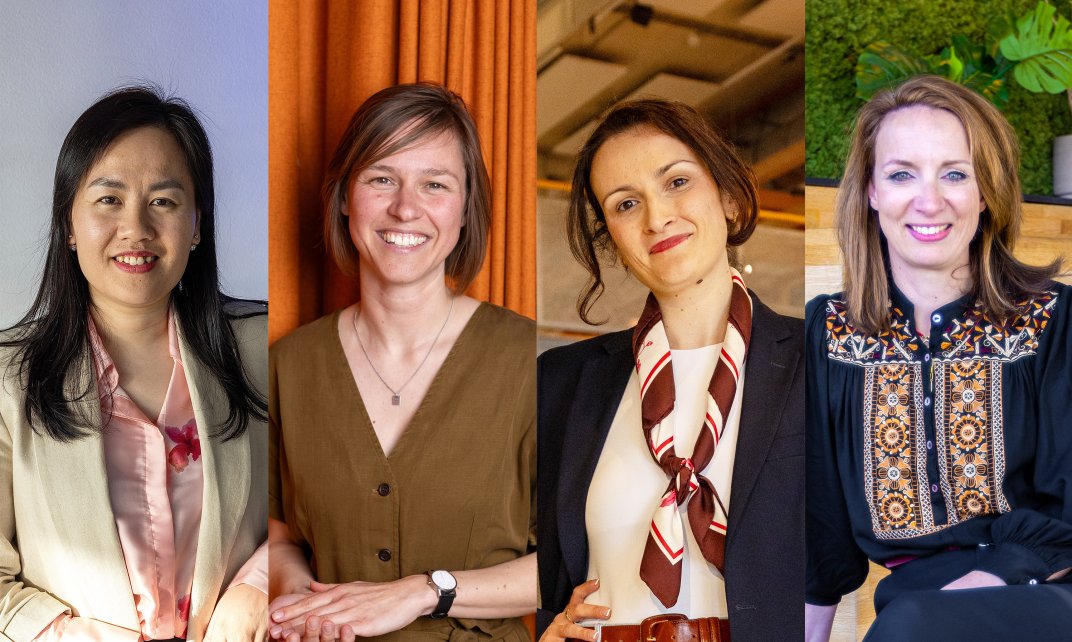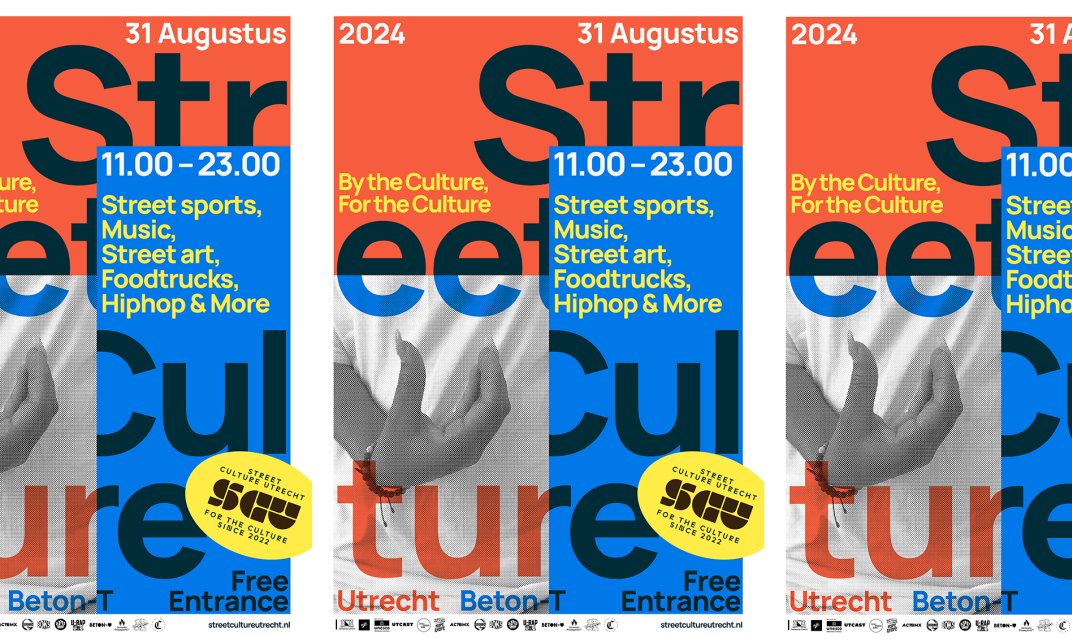
Closing remarks of the event on climate adaptation and culture (22/10)
Closing remarks of the event on climate adaptation and culture (22/10)
Today we have seen a number of examples in which culture and heritage are key ingredients for local climate response. I would sincerely like to thank the speakers for sharing their insights. Your cases have not only inspired us, they have also given us a deeper understanding of the power of heritage and culture to offer solutions to climate adaptation that are tailor-made to local context and needs.
Human process
Today’s discussion has taught us that climate adaptation is more than anything a human process, requiring cultural resources and a change in mind-set. Or in the words of Unesco, we need to “change minds, not the climate”. Climate policy and practice should include the use of historical knowledge and the participation of local communities and their cultures and traditions in the process.
I believe it is safe to say that we can draw a number of conclusions from our discussion today, that will help us shape a vision about the essential need for heritage and culture in climate adaptation policy and practices.
Firstly, we need to move away from the dualistic world view that has been used in modern Western thought. Nature and culture are too often considered two separate domains. However, the examples of today show us the continuous intertwining of culture and nature in human environments. As such, nature-based and culture-based solutions to climate adaptation go hand in hand.
Different knowledge
Secondly, human’s response to climate change, such as the fight against water or drought, is not just something of the present, it is something that communities have been doing for centuries. We need these forms of knowledge, besides scientific or technical knowledge, to adequately tackle climate adaptation. Knowledge based on experience, on practical skills, on trial and error. Knowledge that is acquired by responding to a constantly changing natural and human environment. Knowledge that is stored in our traditions, our history, our local practices, our heritage.
Thirdly, today’s examples have demonstrated that when action is built on local traditions and customs, it provides agency to community groups to be in the driver seat of change. The use of culture in climate adaptation enhances community participation and as such helps democratize climate action and enhances communities’ resilience to external factors.
Fourthly, when climate adaptation is built on heritage, culture and traditions, communities will be more likely to support policy decisions and government plans for climate action. Building on the identity of communities is a necessary ingredient for the acceptance, and therefore successful implementation, of policy measures.
Power of Culture
In conclusion,
The Netherlands Commission for Unesco calls for greater recognition of the power of culture, heritage and traditional knowledge in climate action. We need yesterday’s experiences to design today’s and tomorrow’ climate solutions, in which the human factor is key.
Therefore, let us see our event today not as the end of our journey, rather as a beginning. We are ‘on the road to CAS’ – the international Climate Adaptation Summit taking place in January 2021. We will continue our journey, also after the summit, to take a stand for culture and heritage in climate policy. We will seek alliances with practitioners, knowledge partners and policy makers to sharpen our vision and to define policy recommendations. We will continue to collect and share best practices. As such, we will contribute towards a growing movement of the much needed acceptance, action, and human agency to indeed, change minds, not the climate.



